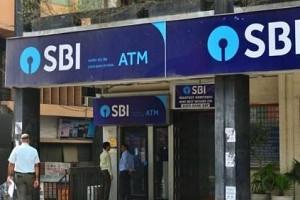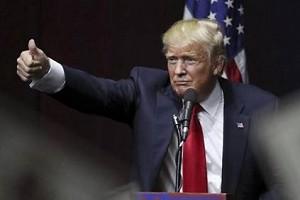CHECK HOW US TRAVEL BAN AFFECTS H-1B, L-1, F-1, EB-2 AND EB-3 GREEN CARD HOLDERS - REPORT!
Home > News Shots > BusinessUS President Donald Trump’s move of banning the entry on several work visa categories had created a lot of panic and fear amongst Indian working in the US. Individuals, who were to be affected by the travel ban were technology workers and intra-company transferees who are very highly skilled at offshore affiliates of American companies.

As per an Economic Times report, the June Ban, which ends on December 31, 2020, will have a bad effect on H-1B, L-1 and F-1 (student) visa categories as well as the long-term impact on EB-2 and EB-3 green cards.
Nearly, 70 percent of the H-1B and L-1 visas are granted to Indian nationals, so this June Ban is unlikely to have a major, immediate impact on Indian IT/ITeS companies while only a relatively small number of H-1B employees will be affected.
Reports suggest that most of the H-1B workers with approved petitions under the FY 2021 H-1B CAP, could not have started work before October 1, 2020; that can only happen if their petitions had been approved.
- Getting into details about H-1B Visas: The travel ban on this visa restricts the entry of individuals on an H-1B or H-4 visa unless they had a valid visa stamp when the ban came into effect. Also, individuals who are already in the U.S. in H-1B or H-4 status will not be affected by the ban as long as they remain within the U.S. So to qualify for an H-1B visa, the person must possess at the least, a U.S. bachelor’s degree or its equivalent.
Meanwhile, dependents of H-1B visa holders are generally eligible for H-4 visas but they cannot work in the U.S. These H-1B visas are limited in number, with a total of 85,000 visas available each fiscal year.
- Looking into the next H-1B CAP FY 2021: The selection process for the H-1Bs ended in the month of March 2020. While an employee can begin working on a CAP subject H-1B visa is October 1, 2020 for this FY; so due to the ban in the US they cannot travel until December 31, 2020 even if they could get an H-1B visa stamp. With the ban to end in December, it will be a loss to the companies but not to an extent of a big one.
- L-1 Visas: With the ban coming into force, it restricts the entry of individuals on an L-1 or L-2 visa unless they had a valid visa stamp as on June 24, 2020. The only good news attached to it is - individuals who are already in the U.S. in L-1 or L-2 status are not affected by this ban as long as they remain within the U.S. This L-1 visa is a non-immigrant intra-company transfer visa. If anyone wants to qualify for an L-1 visa, the employee must have worked for a subsidiary, parent, affiliate or branch office of the U.S for at least one year.
In the L-1A visa holders, individuals are allowed a maximum period of stay of seven years while for L-1Bs, a maximum of five years is allowed in the U.S, ET further reports.
- Coming to the students section which is F-1 Visas: This visa is issued to international students who long to attend an academic program at an accredited U.S. institute. This ban on visas does not restrict the travel of individuals on F-1 visas. The eligibiity for F-1 visa holders can receive up to 12 months of optional practical training (OPT) by applying for work authorization post-graduation.
- EB-2 and EB-3 Green Cards: The recent ban by Trump will not have any impact on the EB-2 and EB-3 visas, which are employment-based immigrant visas (green cards). Both these visas are granted after a lengthy and stringent labor market test requiring a Labor Certification under PERM or the Department of Labor’s Program Electronic Review Management system.
Reports also suggest that individuals who are in the U.S. on an H-1B or H-4 are waiting for their turn for a green card, that should refrain from leaving the U.S. if they need a new visa stamp to return.
- Pointing over the termination or end of permitted term in the U.S: An H-1B worker is allowed a 10 day period to leave the country at the end of the 6 years unless he qualifies for additional extensions. If he or she gets terminated, then an H-1B worker has a 60 days grace period during which period he may look for another job or prepare to leave the U.S.





